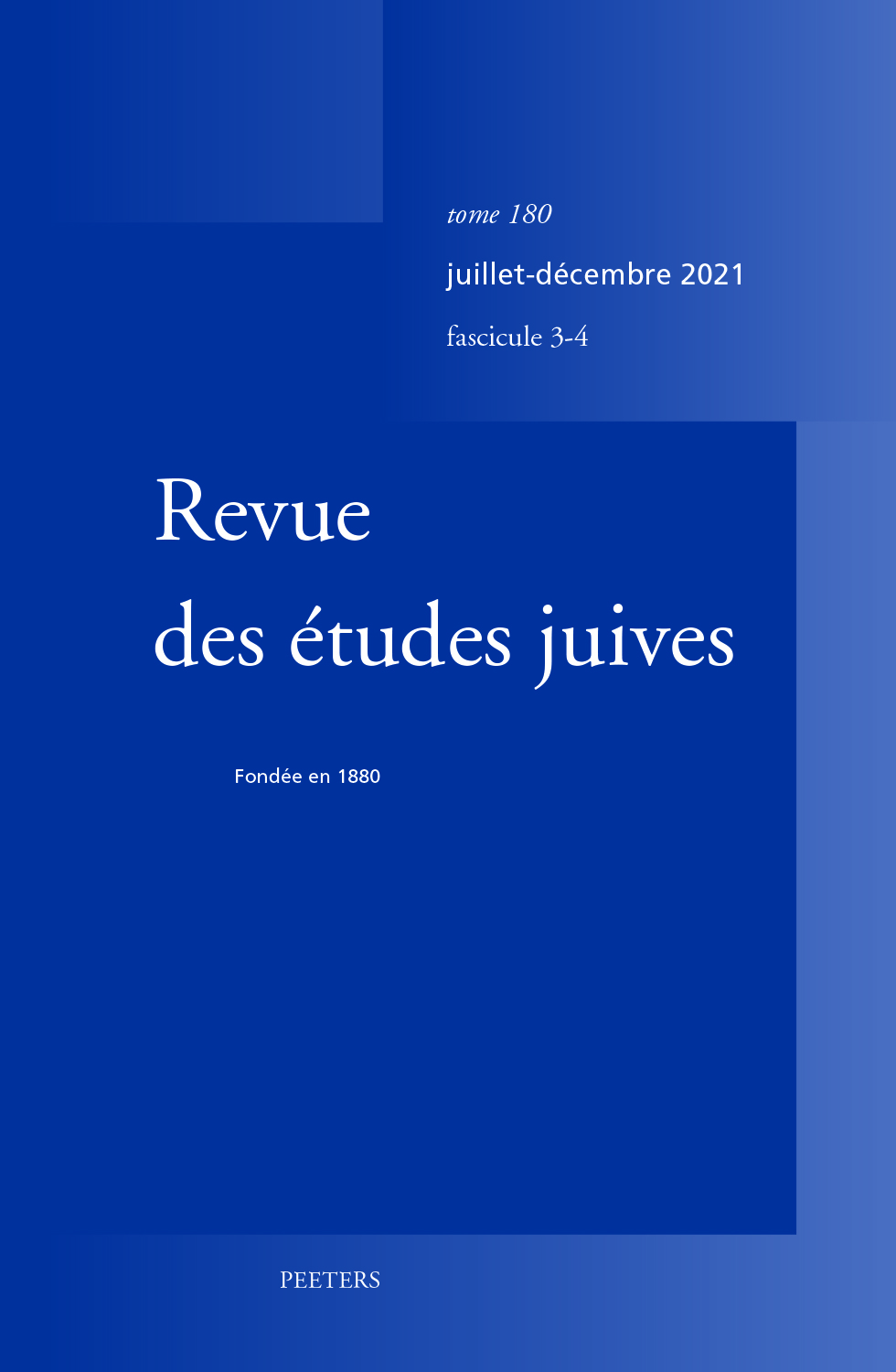 previous article in this issue previous article in this issue | next article in this issue  |

Preview first page |
Document Details : Title: Hebrew Christian Associations in Ottoman Jerusalem: Yeshua-Belivers facing Church and Synagogue Author(s): NEREL, Gershon Journal: Revue des Études Juives Volume: 161 Issue: 3-4 Date: juillet-décembre 2002 Pages: 431-457 DOI: 10.2143/REJ.161.3.236 Abstract : Entre 1842 et 1904 on a tenté de faire renaître dans la Jérusalem ottomane une communauté de juifs croyants en Yeshua (Jésus) sur le modèle de celle du Ier siècle telle que la décrit le Nouveau Testament, à l'instigation, en particulier, de la London Society for promoting Christianity amongst the Jews. La ville sainte devint le foyer des idées et des menées restaurationnistes aussi bien des Chrétiens de la gentilité que des juifs attendant avec ferveur le prochain retour du Messie. Après avoir, d'abord, approuvé l'établissement de communautés de chrétiens hébreux, les représentants de l'Église anglicane se firent réticents et retirèrent leur soutien enthousiaste dès lors que les associations de chrétiens hébreux tendirent vers une plateforme en vue de la création d'une nouvelle Église juive, considérée par les Églises instituées, anglicane et luthérienne, comme un développement nuisible et schismatique. En conséquence, les juifs croyant en Yeshua furent incités à renoncer à leurs tendances à l'indépendance et invités à renoncer à toute pratique juive pour rejoindre les Églises de la gentilité. Between the years 1842-1904 there were special attempts in Ottoman Jerusalem to revive the Jewish community of believers in Yeshua (Jesus) — following the model of the first century, as portrayed in the New Testament. Behind these endeavors stood particularly the London Society for promoting Christianity amongst the Jews. As both Gentile and Jewish Christians fervently anticipated the forthcoming return of the Messiah, the Holy City was the focus of their restorationist ideas and activities. Although initially the representatives of the Anglican Church endorsed the establishment of Hebrew Christian communities, eventually they became reluctant and withdrew their enthusiastic support. This reversal took place while the Hebrew Christian associations tended to form the platform for the creation of a new Jewish Church, which was viewed by the historic Churches, both Anglican and Lutheran, as a negative and schismatic development. Consequently, Jewish Yeshua-believers were discouraged from continuing their independent tendencies, and rather were expected to abandon any Jewish customs and join the existing Churches of the Gentiles. |
|


